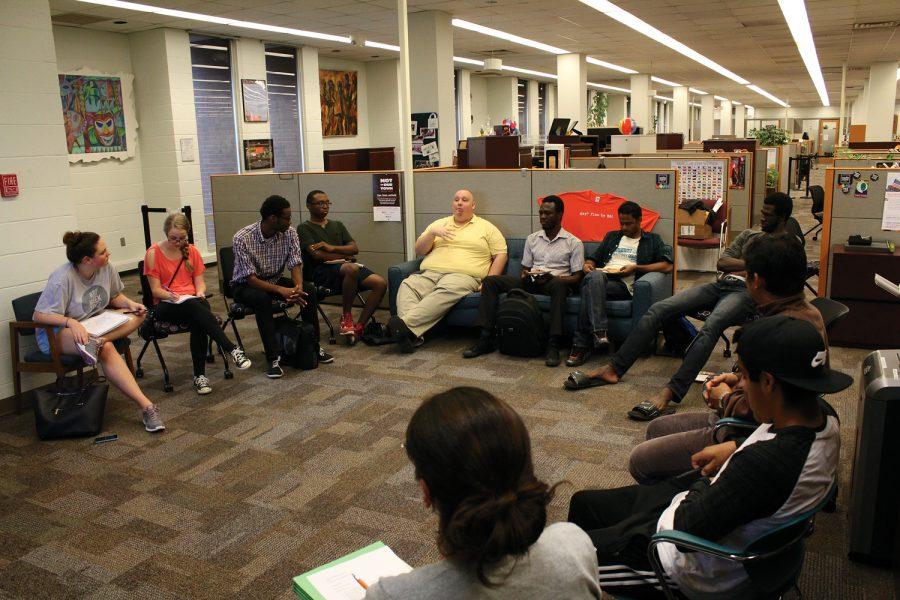With the upcoming national election gaining media attention every week, conversations about political diversity issues are growing on campus.
The Office of Multicultural Affairs continued their Ethnic Student Center Dialogue Monday evening by dissecting how the Latino community is affected by their elected officials. The programming also looks to celebrate Latino Heritage Month here at the University.
Dr. Nicole Kalaf-Hughes, an assistant professor in the University’s political science department, facilitated the discussion by introducing her research.
Kalaf-Hughes studies political institutions and how they function in relation to serving their constituents.
“I (research) how certain officials do or do not represent their own constituents,” she said.
Students and professors spoke on how immigration is a predominant topic for many White House hopefuls. Kalaf-Hughes said that sometimes our American view can become jaded and simplified when it comes to border security.
“How do you put millions of people on a bus and deport them, especially when you’re not talking about a specific country,” she said. “If you want to talk about brutal borders, all the countries are horrifically violent. It makes our border look like a delight.”
Krishna Han, the assistant director for Diversity Education said that the politicians are honing in on something that has been problematic in all of United States history.
“I think we’re tapping into something that has always been there,” he said.
The discussion moved into how immigration politics creates unsafe spaces for people of color, especially the Latino community.
Student Vaughn Thorton said, “We have shaped identity around them, but I’m not (sure) that there is all agreement around Latino culture.”
The conversation shifted into the erasure of the Latino community can be harmful to the United States socially and economically.
Jay Torres, a women’s gender and sexuality studies major said that this neglect to specific culture is personally harmful.
“I feel like my identity is completely erased and not validated just for the convenience of someone and their own ignorance,” she said. “When I moved to the U.S., the only one specific thing (to do) was to be white or to be American. It means to leave your culture behind you and assimilate into an American culture.”
Torres said that there needs to be a change in how politicians view their constituents, especially people of color.
“There needs to be a change in consciousness,” she said. “Every single person came from an immigrant. We all have a story and background, we all fought for something. We need to be aware of the things that we fought for… that was important for us.”














